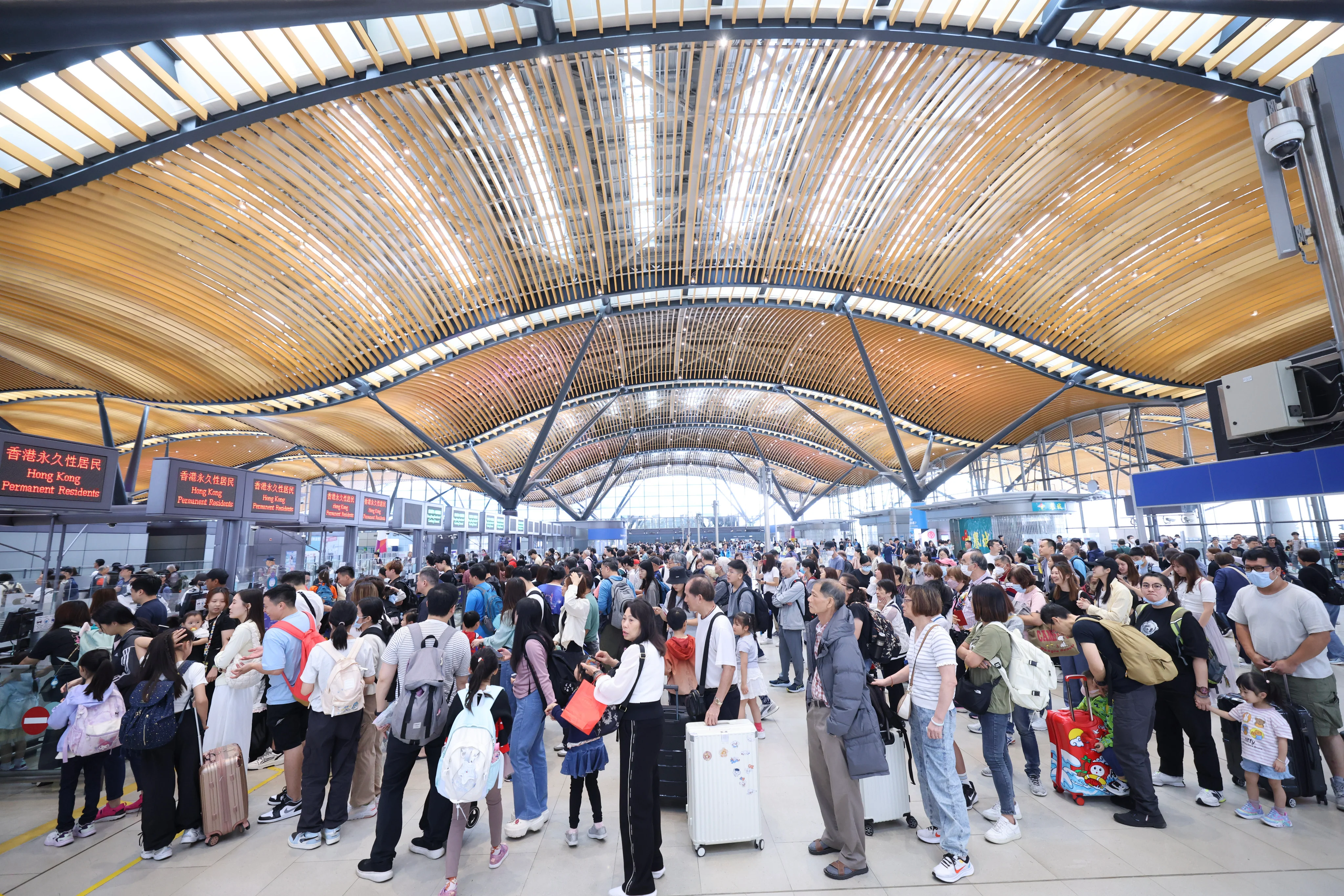Copyright scmp

Hongkongers will be able to use facial recognition at more mainland Chinese checkpoints, while more professionals from additional regions across the border will be granted longer stays in the city under new policies announced by national immigration authorities on Monday. According to the National Immigration Administration, Hong Kong residents with a mainland travel permit will, from Wednesday onwards, be able to cross the border through “intelligent” fast lanes at designated mainland ports in Shanghai, Xiamen, Guangzhou, Shenzhen and Zhuhai. “[Eligible residents] aged 14 and above, and agree to have their facial and fingerprint information collected and verified, may choose to go through the intelligent fast lanes in the ports mentioned above through facial recognition,” the administration said. The new arrangement will also apply to Macau and Taiwan residents holding valid mainland travel permits. Facial recognition clearance has already been implemented at Shenzhen Bay Port and Gongbei Port in Zhuhai. Newly added checkpoints include Huanggang, Luohu, Liantang, Futian and Wenjindu in Shenzhen, the Hong Kong-Zhuhai-Macau Bridge, and Shanghai Hongqiao International Airport. As part of the 10 new measures announced by the National Immigration Administration on Monday, Beijing will also expand the scope of its multi-entry visa scheme for mainland professionals travelling south. The policy currently allows outstanding professionals in specific fields, in Beijing, Shanghai and mainland cities within the Greater Bay Area, to apply for multi-entry visas to Hong Kong and Macau. From Wednesday, the eligibility will be extended to those based in the Yangtze River Delta, the Beijing-Tianjin-Hebei region and all Chinese pilot free trade zones. Valid for one to five years, these visas allow holders to stay in Hong Kong or Macau for up to 30 days per visit – longer than the standard seven-day limit for other types of exit endorsements. The scheme covers professionals in scientific research, cultural and educational, healthcare and medical, as well as legal sectors. Meanwhile, new measures will be introduced to support mainland talent working in the Shenzhen area of the Hetao Shenzhen-Hong Kong Science and Technology Innovation Cooperation Zone. Those employed at scientific research institutes and technology innovation enterprises in the Shenzhen park can apply for a multiple-entry permit to Hong Kong or Macau, valid for three years. Authorities said they would grant “preferential treatment” on business travel quotas to Hong Kong and Macau for “key enterprises and institutions in hi-tech, advanced manufacturing and other sectors”. They added that emerging and start-up firms would be allowed to apply for Hong Kong or Macau business travel with tax exemption in their first year of operation. Huanggang and Futian ports will establish dedicated channels for workers in the Shenzhen park, while clearance service reservations will be provided for major projects and important events. Mainland immigration authorities will also set up “green channels” for vehicles transporting scientific research materials to and from the zone, as well as streamline procedures and enhance clearance efficiency. Separately, the administration will introduce a new visa renewal arrangement for mainland residents visiting family members in Hong Kong. From November 20, mainland residents travelling with a family visit endorsement may renew their documents through China Travel Service (Holdings) Hong Kong if their approved stay is insufficient. Applications must be submitted at least seven working days before the current stay period expires.



